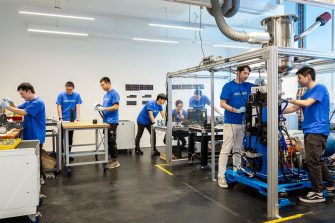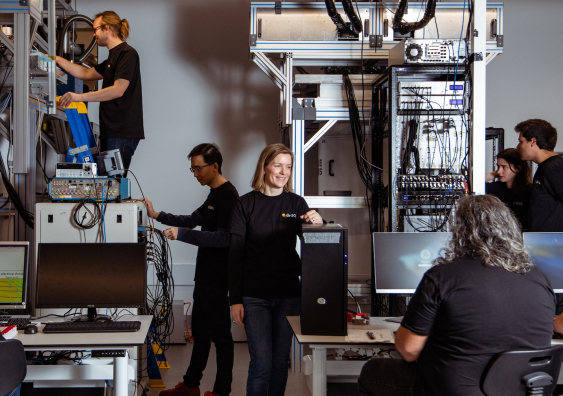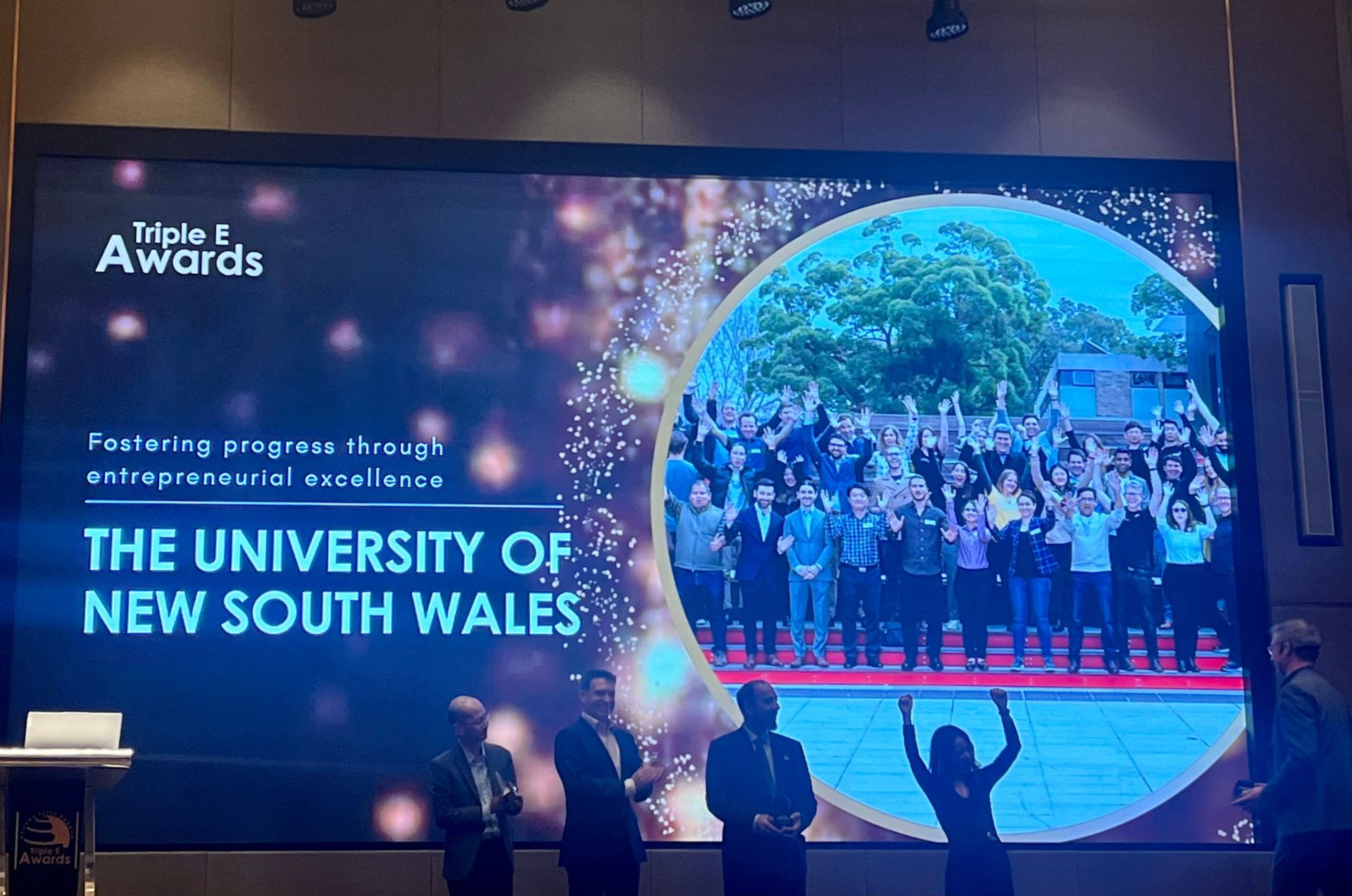UNSW ranked number one for startups and spinouts for third straight year
18 October 2024

The DeCarice team is commercialising research in technology that converts diesel engines to run on hydrogen.
Photo: DeCarice Pty Ltd.
A national report of public research outcomes shows UNSW is the leading university for transforming research into promising and successful businesses.
UNSW Sydney has ranked number one in the country for the largest number of new startup and spinout companies founded through technology developed at the University in 2023. This is the third consecutive year the UNSW has topped the table in the annual Survey of Commercialisation Outcomes from Public Research Report (SCOPR).
UNSW recorded 12 spinout companies in 2023 across a variety of fields. The UNSW-derived projects include new treatments for tissue surgery, clean fuel, next-gen solar modelling and virtual reality driving simulators.
UNSW Deputy Director of Business Development & Commercialisation Dr Dax Kukulj said the milestone reinforced UNSW’s position as Australasia’s leading institution in research commercialisation and entrepreneurship.
“It’s extremely rewarding to again top the region for new spinout companies. UNSW continues to prioritise commercialisation efforts through our Industry & Innovation portfolio and Founders programs, and major initiatives like the Trailblazer for Recycling and Clean Energy (TRaCE) and Defence Trailblazer. By strengthening our entrepreneurial ecosystem, and supporting spinout companies, we are driving real societal impact from our world-class research at UNSW," he said.
Medical implants to revolutionise tendon repair surgery
Over his three decades of research, Professor Bill Walsh has helped pioneer research into tissue reconstructive technologies.
Prof. Walsh and his colleague Dr Matthew Pelletier developed their trailblazing concept, which is likely to change the way surgery on tendons and ligaments is performed. The pair founded Point Break Orthopedics with key partner, US firm Cor Medical Ventures, with the view to making the product available to surgeons worldwide.
They have since raised more than US$2 million in seed funding which will go towards its commercialisation, and say their sports medicine implants could increase success rates for millions of people who undergo tendon and tendon-bone reconstructive surgery each year.
Prof. Walsh said UNSW’s Innovation & Industry team was very supportive of their idea and were instrumental in helping him and Dr Pelletier start the spinout company.
Cutting carbon emissions for heavy industry
UNSW spinout DeCarice is accelerating the clean fuel transition by commercialising research in technology that converts diesel engines to run on hydrogen.
Mechanical engineer Professor Shawn Kook developed the technology that can be retrofitted into existing diesel engines, thereby allowing heavy industries to significantly cut their carbon dioxide emissions.
Prof. Kook said he knew his technology could help accelerate decarbonisation across a range of hard to abate heavy industries such as mining and agriculture.
“Diesel operators are required to reduce their CO2 emissions, and this is key for their operations – there’s desperate demand for it,” he said.
By strengthening our entrepreneurial ecosystem, and supporting spinout companies, we are driving real societal impact from our world-class research at UNSW.
To expedite the commercialisation of his technology, Prof. Kook participated in UNSW Founders’ Climate 10x Accelerator program, which provided knowhow for starting a business, mentoring and classes on how to attract seed funding and pitching his idea. He also received support from UNSW’s Innovation & Industry.
“With these incredibly supportive programs, I’ve been able to successfully launch DeCarice, which directly stemmed from our innovative research at UNSW,” Prof. Kook said.
The UNSW spinouts established in 2023 include:
- Point Break Orthopedics aims to improve the treatment and outcomes of sports medicine procedures.
- DeCarice is accelerating the clean fuel transition by commercialising research to retrofit existing diesel engines to run mainly on hydrogen.
- Swan Genomics is commercialising an innovative new approach to DNA sequencing to deliver more accessible genomics data to existing and new markets.
- Sevren is developing electro-optical arrays (optrodes) that will enable true brain computer interfaces and revolutionise the way we interact with technology.
- FootprintLab provides current, credible and commercially ready carbon footprint and circular economy data, to integrate with fintech, open banking and accounting software.
- Advanced Alloy Holdings specialises in the discovery and development of radically new advanced alloys.
- AttoQuest is commercialising a fast, simple and sensitive technology for the detection of individual biological molecules. Its ultimate sensitivity at the single particle level enables early and rapid diagnostic testing of infectious diseases.
- Foresight PV develops high-precision models for the performance of next-generation photovoltaic (solar) products. They reduce uncertainty by up to 50%, enabling more accurate yield predictions and faster fault detection across optical, electrical, thermal and financial parameters.
- Shanghai WarpEnergy is creating innovative solutions that contribute to zero emissions, with a particular focus on anion exchange membrane water electrolysers, a critical technology for green hydrogen generation.
- TroBio Therapeutics is developing new classes of drugs that target the tropomyosin family of proteins to treat a range of human conditions including ovarian cancer and essential thrombocythemia.
- Tube Fishways is designing cost-effective techniques to provide fish passage over high (>8m) barriers, aiding fish migration essential for their biodiversity.
- VIRCity is commercialising low-cost virtual reality driving and cycling simulators for emerging markets.
Media enquiries
For enquiries about this story and interview requests please contact Louise Templeton:
Tel: 0413 495 994
Email: louise.templeton@unsw.edu.au


.jpg)


